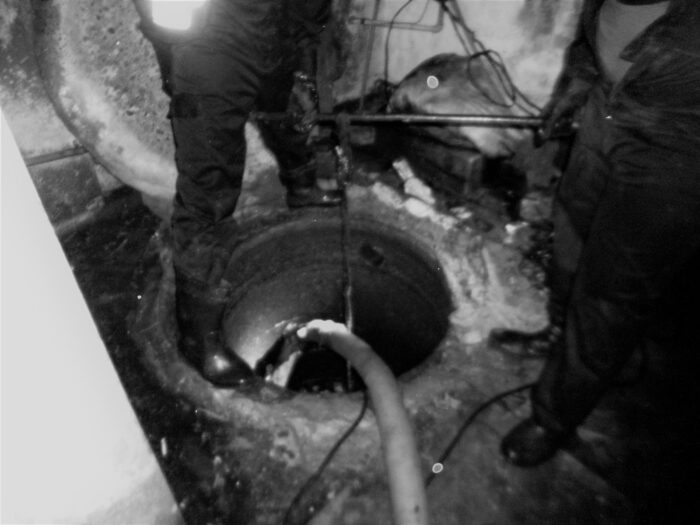
A new paper co-authored by Amita Bhakta, Sally Cawood (Lancaster University), Mariam Zaqout (University of Leeds) and Barbara Evans (University of Leeds), ‘Sanitation work: realizing equity and inclusion’ was recently published in the journal Frontiers in Water.
In this paper, we highlight how despite the growing attention being paid to the need to secure safer working conditions for sanitation workers who are marginalised by their hazardous roles, little attention is being paid to the issue from equity and inclusion perspectives within the WASH sector. Equity and inclusion perspectives on sanitation work are needed to challenge the technical and heath-centric framings of sanitation that currently dominate debates, and that overlook the lived realities of sanitation workers. The paper discusses the need to focus on rights ‘in’ sanitation as well as rights ‘to’ sanitation, particularly for workers who are involved in the handling of human waste across the global South. Interdisciplinary and intersectional approaches, as the paper argues, can help us to look at how sanitation work is divided along gendered lines and impacts experiences of menstrual hygiene management, the recruitment of widows after male manual scavengers die in sewer deaths, challenges in access to well fitted personal protective equipment for women, maternity rights and childcare, and discrimination at work among other issues. Sanitation workers are often left with disabilities due to work related injuries, but as the paper discusses, looking deeper at occupational health and safety, accessible facilities and equipment, social security and improved urban planning can begin to pave ways to support those left with impairments. It must be recognised that sanitation labour is intrinsically linked to caste and religion, and continues to be associated with low-class and religious, racial and ethnic minorities around the world, reinforcing exclusion of workers in society. From the lens of age, we highlight the need for more attention towards child workers, who are exposed to accidents, health risks and a lack of access to education.
The key takeaways of the paper are:
- Collaboration between sanitation workers, human rights activists and allies in the WASH sector and equity and inclusion community, has the potential to foster a long-lasting improvement in the experiences of sanitation workers and workers who are able to leave this occupation.
- Existing frameworks for equity, inclusion and rights in WASH for service users require further expansion to explicitly consider the measures needed to support a diverse population of sanitation workers (and other workers) who provide essential services.
- Existing standards for workplace inclusion, promoted by the International Labour Organization and enshrined in national law in many countries, such as maternity protection, social security, standards on annual leave, minimum pay, unfair dismissals, harassment cases, insurance and compensation for injury, and sickness support must also form part of inclusive approaches to supporting sanitation workers.
- Securing the rights of all who work in sanitation is foundational to equity and inclusion.
The paper can be accessed here.
A special thank you to members of the Initiative for Sanitation Workers (ISW) advisory group and to all speakers, participants and organizers of the Sanitation Workers Forum, and to the Bill and Melinda Gates Foundation for financial support.
